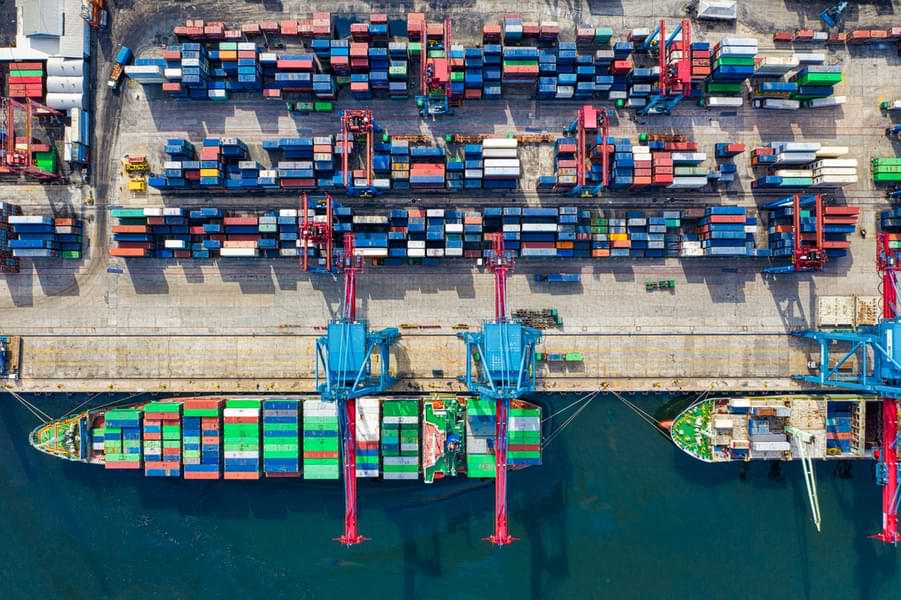Business hates uncertainty and January’s phase one Trade Deal between China and the United States will no doubt bring a sense of relief to many companies around the world engaged in international trade.
But does this agreement actually mean that US corporations and their China-based SME suppliers can anticipate the return of a normal business environment?
Content
In reality, the ongoing US-China technology war, plus a domestic economic slowdown on the mainland, are two important factors that will limit the scope for China to fulfil the expected USD 200 billion extra spending on US products and services. Furthermore, Donald Trump may choose to re-open trade negotiations with China if he believes such a move can bolster his standing in the November presidential elections.
Consequently, there is every likelihood that the battle between Trump and Xi Jinping will resume later this year – exacerbating an already uncertain global economic outlook and further impacting the stability of many thousands of companies.
The New Reality Facing US-based Trading Companies Phase in 2020
The Trump-Xi phase one Trade Deal means there are plenty of winners and many losers – Some of the less fortunate are US companies for which tariffs have significantly raised their cost burden. A recent survey of business owners indicated that China trade tariffs have increased the cost of doing business for more than one third, or 37%, of small businesses across the U.S.
These businesses now face important decisions about how best to maintain a stable financial position. Their options include absorbing the additional cost of tariffs or raising prices to customers. Alternatively, they might try switching to alternative product sources outside China or negotiating better terms with current suppliers.
For most US buyers, the first and easiest choice is to negotiate better contract terms with their trade partners and so Asian manufacturers should are aware of this imminent threat to their sales price.
Asian Manufacturers Response to the Coming Financial Storm
In view of the heavy impact of the US/China trade deal, Asian manufacturers can anticipate intensive price negotiations with their customers over the coming months, if these have not already commenced. Contract negotiations are generally dominated by the buyer who pushes for the best possible deal before committing an order to an SME manufacturer. This overwhelming purchasing power also enables similar conditions to be imposed in response to trade tariffs.
Facing unpredictable order levels and challenged by a squeeze on pricing, what options do SME manufacturers have to counter the threats to their business? The keys to ensuring business continuity include the capacity to handle sudden changes in order levels and ready access to working capital on flexible payment terms.
Speaking of Asian manufacturers, Vietnam seems to be an attractive market. Several large firms are outsourcing from Vietnamese suppliers for a profitable, efficient, and diversified business production.
These are conditions that traditional banks cannot necessarily meet today, as the tougher regulatory environment introduced after the 2007-8 financial crisis has made them increasingly reluctant to finance SMEs. Prior to confirming a loan, a bank will typically require a great deal of information about the company and its clients; before imposing legal covenants and strict loan terms; while also demanding substantial collateral in terms of property or machinery. An inflexible demand to finance twelve months of invoice transactions will most probably follow. And even when all of these time-consuming terms have been met, there is always a chance that the bank will deny the application in favour of lending to a larger client which brings greater profit.
Looking Beyond the Bank Manager for Flexible Financial Support
With customers impacted by tariffs and bank managers indifferent to their difficult business situation, what can SMEs do to ensure greater loan security? One option is to consider Invoice Discounting, which enables companies to receive an advance on outstanding invoices in order to fund variable order levels and rapidly ramp up production.
Invoice discounting has moved online in recent years and can be easily arranged through a self-service digital platform such as Velotrade. There is no longer any need to wait in line at a bank branch or fill in paper forms. Instead, details are registered via an Internet-connected computer or smartphone and – following a straightforward due diligence process – users can post the invoices for which they require financing.
An auction is created for each invoice submitted and a number of pre-approved professional investors then provide funding. Once the auction completes within a few days, funds are immediately transferred to the user’s bank account. The invoice seller receives 80-90 percent of the invoice value to meet their funding needs, with the balance payable once their customer has settled the full invoiced amount. Costs are kept to a minimum to ensure affordability of the service and the platform charges a small percentage of the invoice amount for each transaction.
Conducting Trade Finance on the Velotrade platform is more efficient simply because each invoice is treated as an asset with a tangible value and once a detailed client assessment is complete, the investor auction and money transfer can immediately follow. This flexible, no-hassle approach to delivering financial help to SMEs provides an important alternative source of funds available at any time to match the trade cycle.
So in an unpredictable international business environment – with on-again-off-again tariffs and international trade used as a political bargaining chip – Invoice Discounting can provide Asian manufacturers with a straightforward solution to securing their order book.
Check our trade finance article for more details on the application process and the advantages of using an online platform.
Brought to you by Velotrade, a marketplace for corporates to accessfinancing.
Like our content? Follow us!

